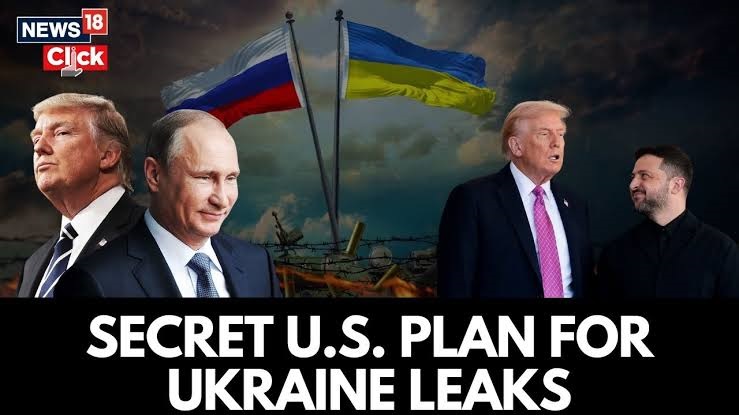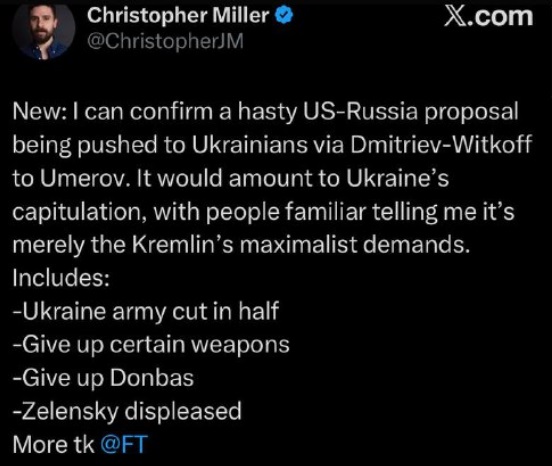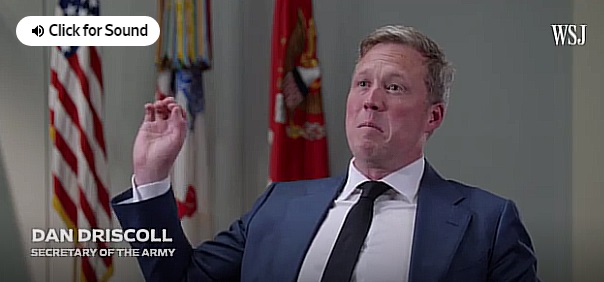
A 28-point-plan, drafted with Russian input, is the White House’s latest push to end the fighting between Russia and Ukraine, POLITICO writes.
American allies and Ukrainian officials were scrambling on Wednesday to understand the terms of a Trump administration peace proposal for Ukraine, with many worrying it meant the U.S. could cave to Russian demands in a rush to end the fighting.
As European and U.S. officials alike sought clarity, they said many aspects of the plan remained in flux, including the role of NATO and any Ukrainian territorial concessions to Russia.
Ukrainian and European officials felt blindsided as the existence of Witkoff’s plan became public.
The 28-point plan — the existence of which was first reported by Axios — would in its current form require significant concessions from Ukraine, including restraints on its military and giving up major territorial tracts, according to a third person familiar with the effort. But the person stressed that the provisions of the plan remained negotiable.
One aspect U.S. officials are still pondering is whether and how to mention NATO, the person said. The discussion of NATO has not been previously reported.
Ukraine has sought NATO membership. While some European countries support that, the U.S. has rejected it and Moscow has long demanded Kyiv not join the defensive alliance, viewing that as a threat. The European allies also worry about granting Russia territorial concessions.
A ‘Financial Times’ journalist Christopher Miller writes:

The White House declined to comment on the specifics of the plan or how it came about.
In European capitals, officials were trying to make sense of a plan with few details to go on.
“We have not been briefed on this,” German Foreign Minister Johann Wadephul told reporters Wednesday. “There are ongoing efforts by all international partners to finally get President Putin to the negotiating table.”
He added: “We naturally support everything that leads in this direction. We are focusing on supporting Ukraine and thus making it very clear to Putin that there is no alternative to a negotiation process.”
Russia’s demands appeared to repeat proposals Secretary of State Marco Rubio had already rejected in the effort to negotiate a leaders summit and that would be unacceptable to Kyiv, the first person familiar with the matter said. These include Moscow’s repeated demand that it control more territory in Eastern Ukraine and that Ukraine give up future security protections from Western allies.
Army Secretary Dan Driscoll, along with Army chief of staff Gen. Randy George and Army Europe commander Gen. Christopher Donahue, were hastily dispatched to Kyiv this week to talk to the Ukrainians about the plan, as POLITICO first reported Tuesday.
The trip came together quickly after a White House meeting last week in which Trump said Driscoll — who was planning a trip to Ukraine next month — should be the emissary to Ukrainian President Volodymyr Zelenskyy and his team about the plan, according to an administration official. Driscoll will follow up his meetings in Kyiv with a series of briefings with NATO allies to catch them up on the plan and what the U.S. sees as the way forward, the official added.
The White House has been bullish about the burgeoning plan, with one senior White House official saying a framework for ending the conflict could be agreed to by all parties by the end of this month, and even “as soon as this week.” A second White House official said both sides will need to show flexibility.
Ukraine hasn’t commented publicly about the plan.
The Kremlin on Wednesday played down the significance of the new proposal.
“There has been nothing new in addition to what was discussed in Anchorage,” Putin’s spokesperson Dmitri Peskov said when asked about the proposal, referring to the Alaska summit between Trump and Putin in August.

Army Secretary Daniel P. Driscoll and the Army’s top general have been sent to Ukraine by the Trump administration to meet with Ukraine’s Zelenskyy to restart discussions about potential peace talks with Russia, according to a U.S. official, ABC News report.
"Secretary Driscoll and team arrived in Kyiv on behalf of the administration on a fact finding mission to meet with Ukrainian officials and discuss efforts to end the war," Col. Dave Butler said in a statement on Wednesday confirming his trip.
Army Secretary Dan Driscoll, along with Army chief of staff Gen. Randy George and Army Europe commander Gen. Christopher Donahue, were hastily dispatched to Kyiv this week to talk to the Ukrainians about a 28-point-plan, drafted with Russian input, that the White House pushs to end the fighting between Russia and Ukraine, as POLITICO reported Tuesday.
The trip came together quickly after a White House meeting last week in which Trump said Driscoll — who was planning a trip to Ukraine next month — should be the emissary to Ukrainian Zelenskyy and his team about the plan, according to an administration official. Driscoll will follow up his meetings in Kyiv with a series of briefings with NATO allies to catch them up on the plan and what the U.S. sees as the way forward, the official added.
There is the possibility that in the future Driscoll may meet with Russian officials, a U.S. official told ABC News prior to the team's landing in Kyiv, adding that it is unclear if Driscoll was bringing a new proposal to restart the talks.
Choosing Driscoll to attempt to restart the peace process emerged from a discussion last week between President Donald Trump and Vice President JD Vance. Typically, a secretary for one of the military services would not be involved in such an important diplomatic overture, but it is possible that sending a military may be seen favorably by Russia, the official speculated.
Accompanying Driscoll are Gen. Randy George, the Chief of Staff of the Army, Gen. Chris Donahue, the commander of U.S. Army Europe and Africa, the Sergeant Major of the Army Michael Weimer, and Lt. Gen. Curtis Buzzard who heads the U.S. military assistance program for Ukraine.
Ahead of his trip to Ukraine Driscoll had discussions with Secretary of State Marco Rubio and Steve Witkoff, who has been the administration's envoy who has worked on peace talks between Ukraine and Russia. Stopping in Germany, Driscoll and his delegation participated in additional updates prior to their trip into Ukraine.
In addition to their meetings to restart the peace talks the Army leaders will also meet with military and Ukrainian business officials about their drone and weapons development programs.
The White House decision to turn to Driscoll and senior military officers is driven in part by the belief that Moscow might be more open to military-brokered negotiations and by frustration that multiple previous attempts have yielded little.
“Secretary Driscoll is traveling to Ukraine to get a sense of facts on the ground. He will participate in meetings in Ukraine and report his findings back to the White House,” said a senior administration official.
Driscoll’s mission is to restart peace talks on Trump’s behalf, another of the officials said.
Driscoll’s boss, Defense Secretary Pete Hegseth, hasn’t visited Kyiv since taking office in January. The decision to send the civilian head of the Army, whose job is focused mainly on training and equipping soldiers, is unusual. But Trump often relies on unorthodox emissaries, including former real-estate developer Steve Witkoff, Trump’s special envoy.
The idea of sending Driscoll, a Yale Law School classmate of Vice President JD Vance, to Ukraine and later to Russia came out of a conversation between Trump and Vance, according to one of the officials.
Europeans rejected the American plan
European foreign ministers said on Thursday that any plan to end the war in Ukraine must include Ukrainians and Europeans after the U.S. floated a framework that would involve Kyiv giving up some of its land and weapons and curbing the size of its army, Reuters reports.
French Foreign Minister Jean-Noel Barrot said any peace plan should not amount to a "capitulation" to Russian President Vladimir Putin.
Other ministers took a similar line, with several saying they had not seen any U.S. plan and would need clarification before commenting further.
Arriving at the Brussels meeting on Thursday, Polish Foreign Minister Radoslaw Sikorski said Europe expected to be consulted on any peace plan as European security was at stake.
read more in our Telegram-channel https://t.me/The_International_Affairs

 11:26 21.11.2025 •
11:26 21.11.2025 •






















